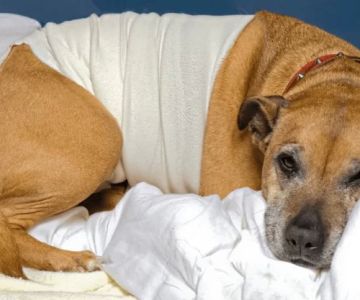- 1. Why Is My Cat Coughing and Sneezing at Night?
- 2. Common Causes of Coughing and Sneezing in Cats
- 3. How to Help Your Cat with Coughing and Sneezing
- 4. When to See a Veterinarian About Your Cat’s Coughing and Sneezing
- 5. Real-Life Case Study: Cat Coughing and Sneezing at Night
1. Why Is My Cat Coughing and Sneezing at Night?
As a cat owner, it can be concerning when your cat begins coughing and sneezing at night. These symptoms may appear harmless at first, but they could indicate an underlying health issue that requires attention. While coughing and sneezing are common behaviors for cats, their presence at night may point to specific causes or triggers that are more prominent during the evening hours.
At night, your cat’s environment may change in ways that exacerbate these symptoms. The air may be drier, or your cat may be exposed to allergens or irritants that are more concentrated in indoor spaces. Understanding why your cat is coughing and sneezing at night is key to addressing the issue and improving their comfort.
2. Common Causes of Coughing and Sneezing in Cats
Several factors can contribute to coughing and sneezing in cats, especially at night. Let’s explore the most common causes:
Allergies
Just like humans, cats can suffer from allergies, and these can be triggered by various environmental factors. Dust, pollen, mold, and pet dander are common allergens found in many households, especially during the night when the air circulation may be limited. If your cat is exposed to these allergens while sleeping, it could lead to coughing and sneezing, particularly if they have a sensitive respiratory system.
Respiratory Infections
Upper respiratory infections (URI) are common in cats and can lead to coughing, sneezing, and nasal discharge. These infections are often viral, like feline herpesvirus or calicivirus, and can flare up at night due to a weakened immune system after a long day. If your cat has other symptoms like lethargy, watery eyes, or a decreased appetite, it may indicate a respiratory infection that needs veterinary treatment.
Asthma
Feline asthma is a condition that can cause coughing and wheezing, especially at night when your cat is more relaxed and the air is still. Asthma in cats occurs when the airways become inflamed and constricted, making it difficult for your cat to breathe. This condition can be triggered by allergens, dust, or even stress. If your cat is coughing frequently and seems to have difficulty breathing, it’s important to seek a veterinarian's advice.
Foreign Bodies
Sometimes, cats may inhale small particles, such as dust, hair, or even tiny foreign objects, while grooming. These particles can irritate the respiratory system, causing coughing and sneezing. This issue may be more noticeable at night when your cat is more still and sensitive to irritants in the air. In some cases, if the object is lodged in the cat’s nose or throat, it can cause persistent symptoms that need medical attention.
Dry Air
At night, the air in your home may become drier, especially if you’re using heating systems that reduce humidity. Dry air can irritate your cat’s respiratory system, causing them to cough and sneeze more than usual. This is a common issue in colder months when heating systems are used more frequently. Providing a humidifier in the room where your cat sleeps can help alleviate this problem.
3. How to Help Your Cat with Coughing and Sneezing
If your cat is coughing and sneezing at night, there are several steps you can take to help them feel more comfortable. Here’s how you can address the issue:
Keep Your Home Clean
Regular cleaning is one of the most effective ways to reduce allergens and irritants in your home. Vacuum your floors frequently to remove dust, pet hair, and dander. Wash your cat’s bedding and toys regularly, and use an air purifier to help remove allergens from the air. These steps can reduce the environmental triggers that may be causing your cat’s coughing and sneezing.
Humidify the Air
If dry air is contributing to your cat’s symptoms, using a humidifier in the room where your cat sleeps can make a big difference. Moist air helps to keep the respiratory tract moist, reducing irritation that may lead to coughing and sneezing. Be sure to clean the humidifier regularly to prevent mold and bacteria buildup, which could worsen the issue.
Consult a Veterinarian
If your cat’s coughing and sneezing persist, it’s important to seek professional advice. A veterinarian can help identify the underlying cause of the symptoms and recommend appropriate treatment. Whether it’s medication for asthma, antibiotics for an infection, or allergy management, your vet will provide the best guidance to ensure your cat’s health and comfort.
4. When to See a Veterinarian About Your Cat’s Coughing and Sneezing
If your cat is coughing and sneezing persistently, especially at night, it’s important to monitor the situation closely. While occasional coughing and sneezing may not be a cause for concern, you should consult a veterinarian if any of the following signs are present:
- Excessive coughing or sneezing
- Difficulty breathing or wheezing
- Lethargy or lack of appetite
- Discharge from the eyes or nose
- Changes in behavior or activity levels
These could be signs of a more serious health issue that requires prompt attention from a veterinarian. Don’t hesitate to reach out for a professional evaluation if you’re concerned about your cat’s health.
5. Real-Life Case Study: Cat Coughing and Sneezing at Night
Take the case of Bella, a 5-year-old domestic shorthair cat who started coughing and sneezing frequently at night. Bella’s owner, Jane, noticed the symptoms would worsen during colder months when the heating system was running. After consulting with her veterinarian, it was discovered that Bella had mild feline asthma, triggered by the dry indoor air and dust accumulation in the home.
After implementing a cleaning routine, using a humidifier, and starting Bella on a prescribed inhaler, Jane noticed a significant reduction in Bella’s coughing and sneezing. With these changes, Bella’s respiratory health improved, and Jane felt more confident in managing her cat’s condition.
If your cat is experiencing similar symptoms, remember that early intervention and proper care are key to ensuring their comfort. If you’re concerned about your cat’s coughing or sneezing, visit Hidden Brook Veterinary for expert advice and treatment options tailored to your pet’s needs.










